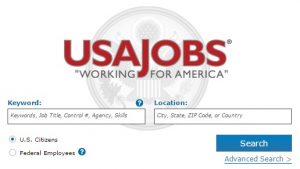Featured Guest Blog by Mary Crane at MaryCrane.com
Too many summer associates and interns make the mistake of believing that they only need to produce quality work to land a job offer. Make note: In today’s competitive work environment, turning in a first-rate assignment earns little more than a “meets expectations” evaluation. To receive a coveted job offer, summer associates and interns must also establish relationships with professionals at every level in an organization.
If you’ve just begun work, don’t worry. Every employer I know has planned lots of opportunities for you to meet with a variety of people in your firm or corporation. When you do, request permission to set aside 10 to 15 minutes to ask a few questions of your own. Then use the following eight relationship-building inquiries to guide your conversation.
#1 How do you spend your time?
Make this inquiry for three different reasons:
First, this question helps you clarify and confirm the role the individual plays within the organization. If you’ve never stepped inside a law firm before, you may not know what a Chief Marketing Officer does and why the role is critically important.
Second, this question helps you develop a clear understanding of day-to-day work expectations. Learning that an entry-level financial analyst frequently spends 70 hours or more per week creating complex financial models may or may not be consistent with the work-life balance you hope to achieve.
Third, the answer contains important information that you can use to follow up and demonstrate your genuine interest in the professional and his or her work. Let’s say a partner tells you that she currently spends an inordinate amount of time assuring a particular client that proposed regulations are unlikely to move forward. After the meeting, you can create a Google Alert about the regulations. As soon as you receive notification of some development, you can share the information with the partner, thereby showing your interest.
#2 Is this what you thought you’d be doing every day?
You may think that most professionals follow a clear roadmap as they advance in their careers—they start at A, move to B, and eventually advance to R, S, and T. But today, nearly every successful professional engages in a nonstop game of chutes and ladders. They start in one position, often move sideways, and periodically slide on a diagonal. Sometimes they even go backward before they move forward again.
This question elicits the professional journey people have taken. Ask this question if for no other reason than most professionals love to share their stories. Many of the responses you receive will be filled with funny anecdotes about obstacles encountered and approaches tried. You will likely hear about career transitions currently unimaginable to you.
#3 What are you most proud of?
Everyone likes the opportunity to toot his or her own horn. Give the people with whom you meet this chance. Let them talk about a victory they snatched out of the jaws of defeat, or the biggest deal they closed, or the time they helped someone who was flailing at work become a proven performer.
#4 What weaknesses have you discovered?
This question helps you identify a respondent’s ability to self-reflect. Professionals who actively think about their day-to-day work experiences—especially errors made in judgment or understanding—begin to comprehend the underlying causes of their success or failure. This knowledge allows them to consciously change behaviors instead of repeating mistakes.
When someone indicates that he has no weaknesses (or is unaware of them), do a quick check to confirm whether he’s joking. If he appears to be serious, you’ve likely found someone who is not good at self-reflection. Keep this in mind during future meetings. As soon as someone cites a specific weakness, fine tune your ears and listen carefully. This professional is affording you the opportunity to learn from his experience.
#5 Are there organizations that I should join?
While social networks are great, never underestimate the importance of connecting face-to-face. Virtually every industry and profession has organizations and conferences where like-minded people connect. Use this question to discern those groups and events that are most worthwhile. You may even learn how to get on the inside track and quickly become a rising star.
#6 Who else should I connect with?
Your summer work experience will move at the speed of light. Absent the insights of seasoned professionals, you risk missing out on some potentially transformative conversations. Use each conversation to help you strategically plan your next one.
Finally, whenever you encounter a specific obstacle or challenge, feel free to ask, #7 What would you do if you were me? And before any one of your conversations ends, don’t hesitate to ask #8, I appreciate the time you’ve given me. Is there anything I can do for you? This closing will help you end the meeting on an especially high note. It demonstrates your intent to build mutually beneficial relationships, an outlook valued by today’s employers.
See more tips from Mary Crane on Starting Work, Networking, Business Etiquette, Time Management, and more on her web site.
 Law students the world over look forward to breaks from law school. Some students view these breaks as a holiday—a time to get away from the intense daily demands of their studies, travel, and visit with family and friends. Other students have ambitious plans for catching up or getting ahead in their studies. Regardless of which approach you take, you are probably pretty happy when you see Spring Break finally approaching. There is nothing wrong to either approach to Spring break, at least in the abstract. In fact, the best Spring Break plans should probably include some of both. The key is to come back to law school after the break in a better place than you were before—and accomplishing this task takes just a little advance planning. Here are a few tips for making the best use of your Spring Break this year:
Law students the world over look forward to breaks from law school. Some students view these breaks as a holiday—a time to get away from the intense daily demands of their studies, travel, and visit with family and friends. Other students have ambitious plans for catching up or getting ahead in their studies. Regardless of which approach you take, you are probably pretty happy when you see Spring Break finally approaching. There is nothing wrong to either approach to Spring break, at least in the abstract. In fact, the best Spring Break plans should probably include some of both. The key is to come back to law school after the break in a better place than you were before—and accomplishing this task takes just a little advance planning. Here are a few tips for making the best use of your Spring Break this year:




